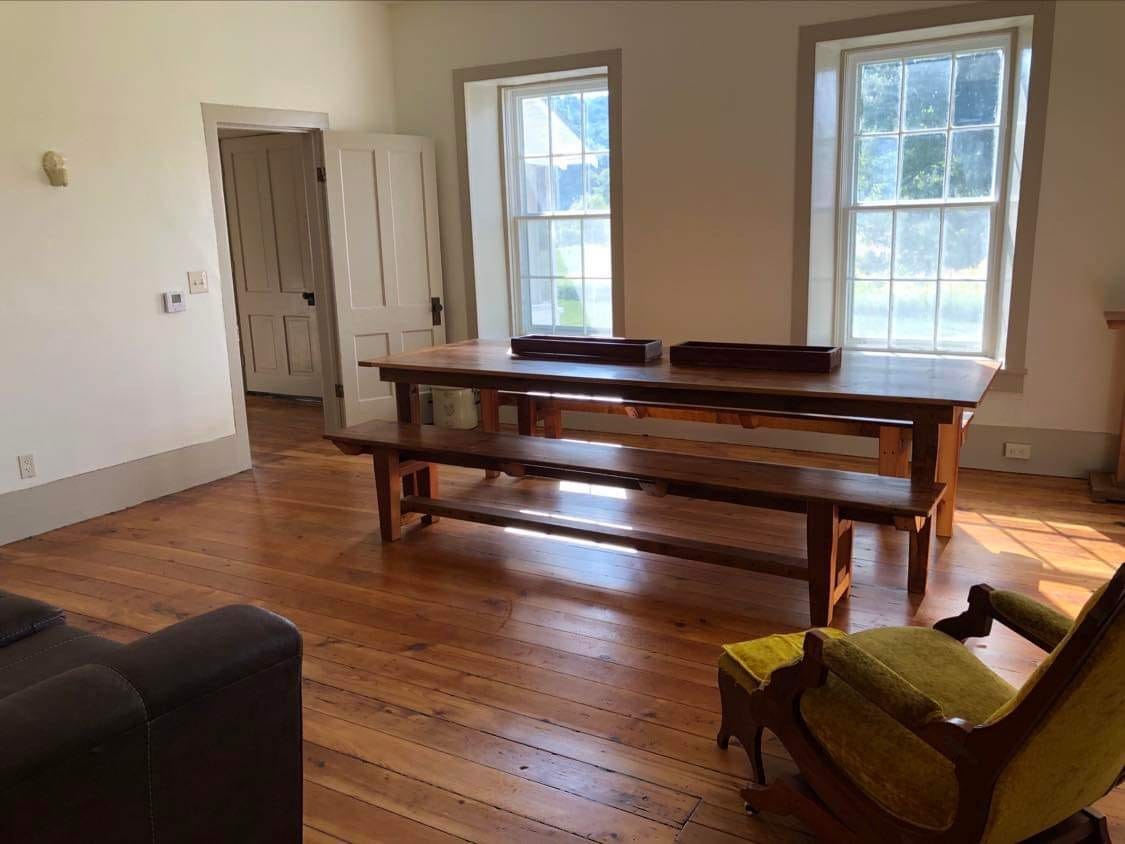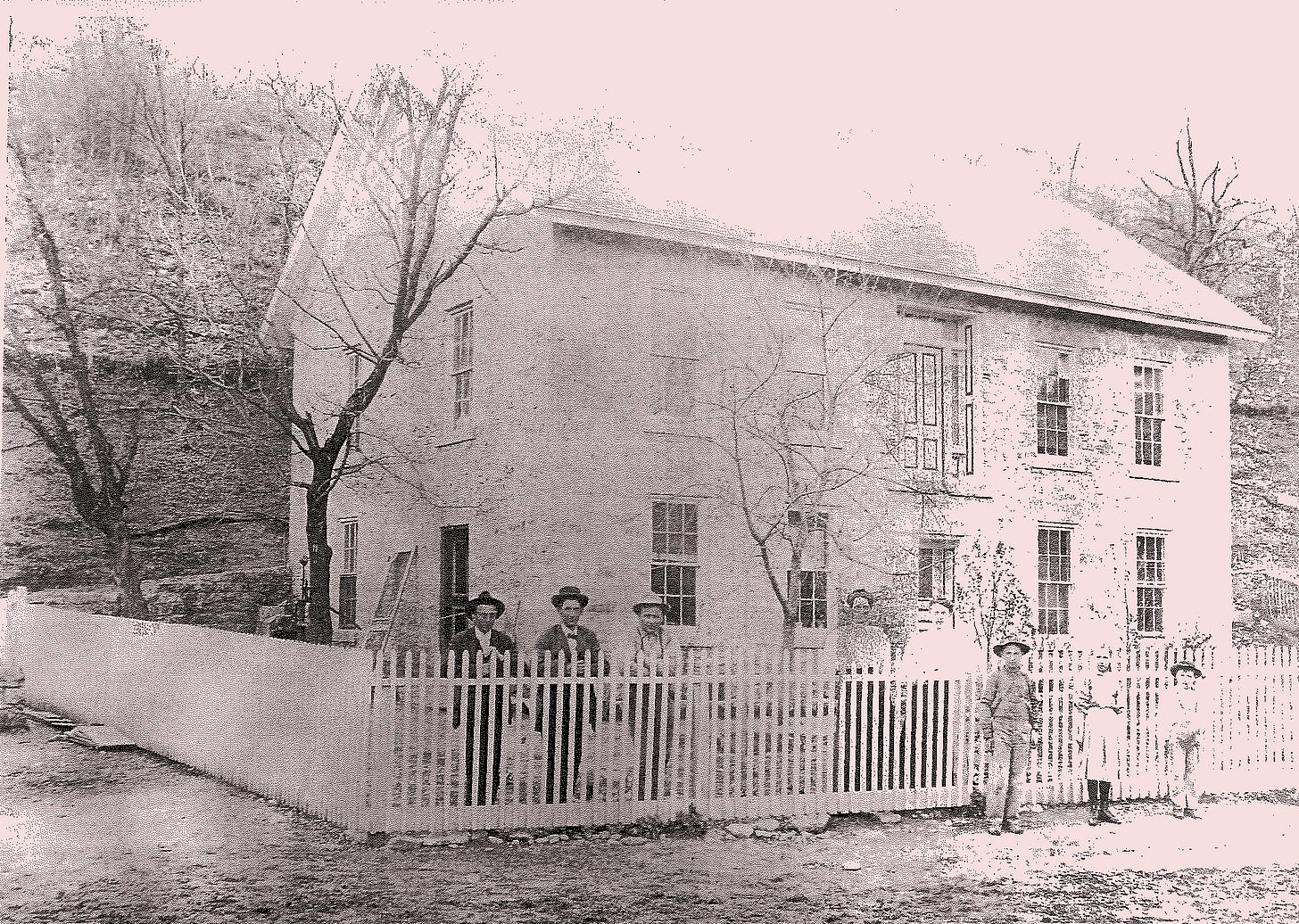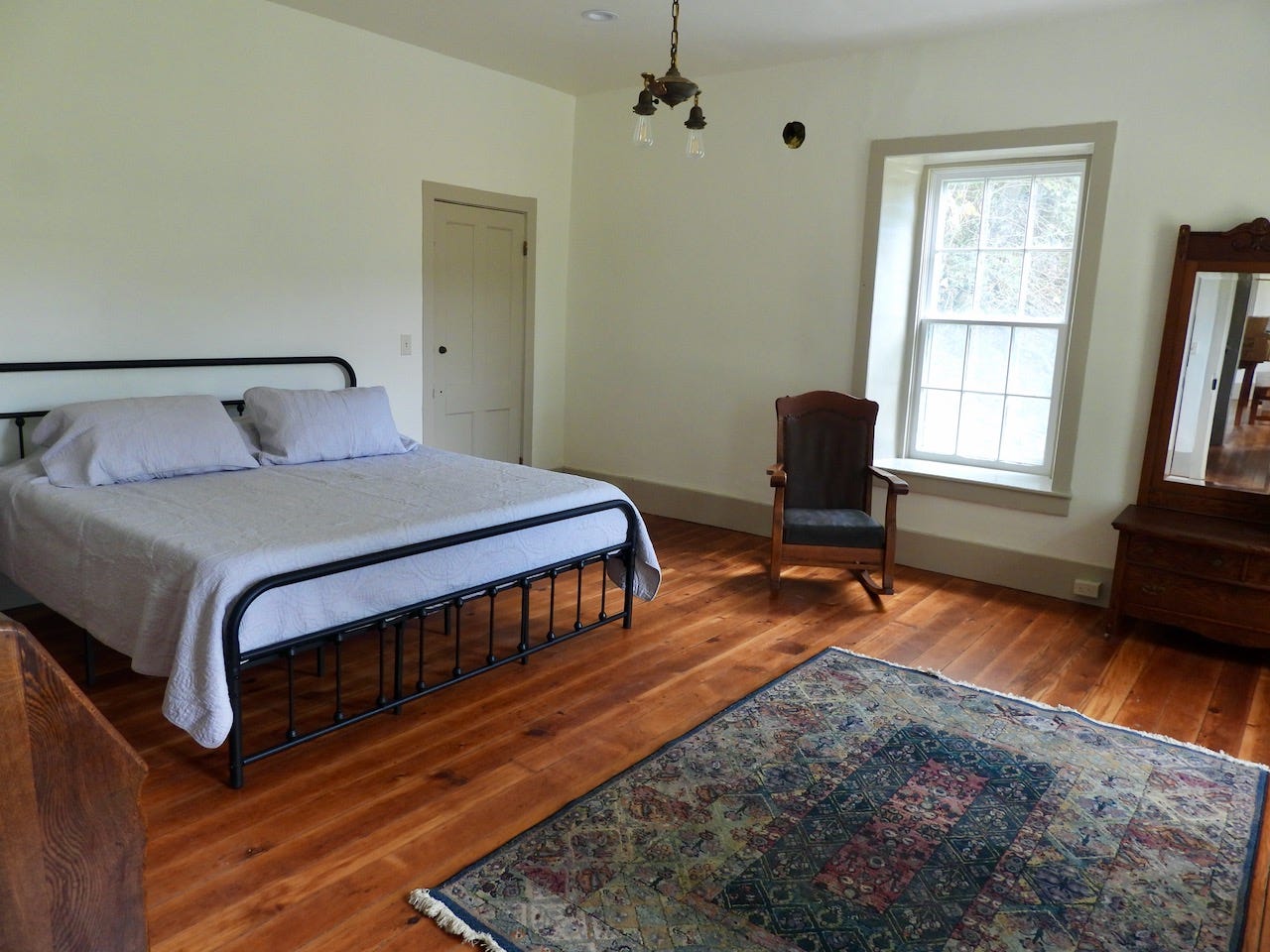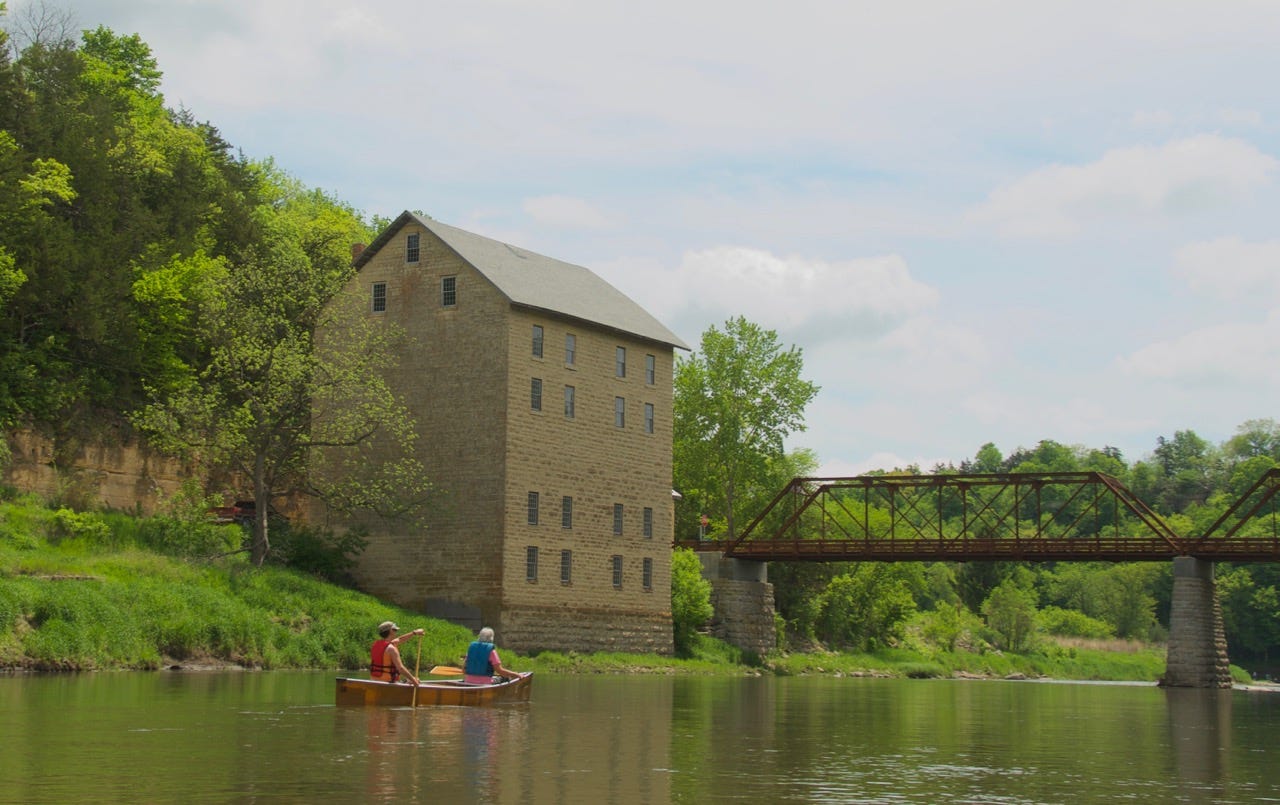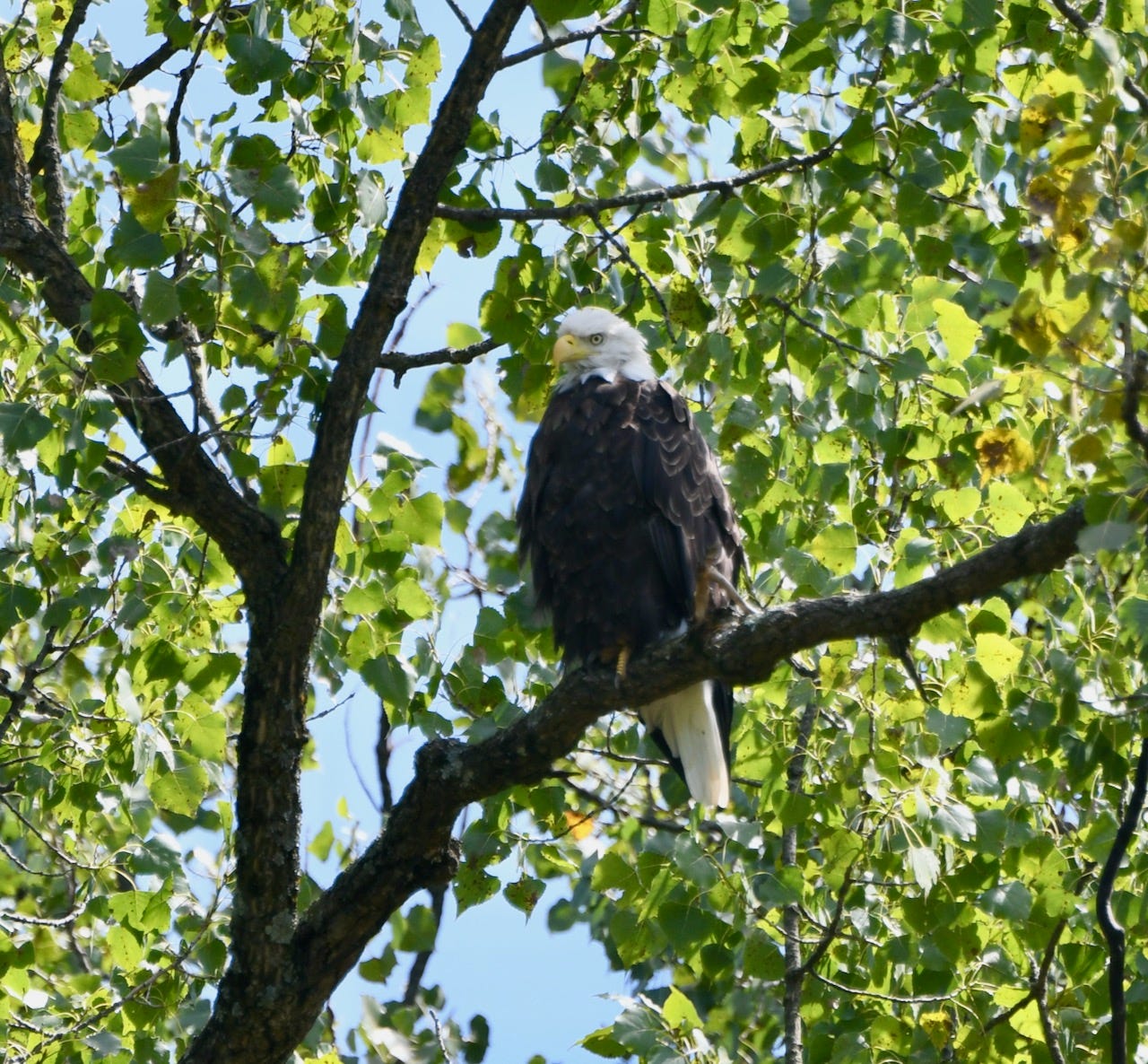Confession:
This is an unabashed, unapologetic promotion for a project I’ve been involved with for a couple of decades. So if you’re tired of commercials, feel free stop reading and go to my friend Bob Leonard’s Cedar Creek Nature Notes blog. Cedar Creek Nature Notes
BUT, if you need a hotel?
In the scenic boondocks of northeast Iowa?
Have I got a deal for you! Here’s my admittedly biased suggestion:
Try the Inn at the Motor Mill Historic Site, nestled along the Turkey River southeast of Elkader.
More than 150 years after it first opened as overnight lodging for farmers who’d brought their wheat to be milled into flour at nearby Motor Mill, the Inn has reopened to welcome tourists, family gatherings, retreats, and small conferences. The renovated Inn has sleeping room for 12 guests.
My bias? I live just over the hill, and I’m a member of the Motor Mill Foundation and the Clayton County Conservation Board, which own and manage the property. I’m also a bit of a history buff, and I’m enthralled with the century-and-a-half legacy of the Inn and the other four limestone buildings at the site.
The Motor Mill complex was the brainstorm of John Thompson, who persuaded partners James Crosby and J. P. Dickinson to help build what they dreamed would be the premier grist mill in the upper Midwest.
They started work in 1866 building the Inn first as a place for Thompson and his family to live. Construction on the Inn, Stable, Ice House, Cooperage – and the 90-feet-tall Mill - continued into 1869, when the iconic Motor Mill began operation in November 1869.

Built on an isolated stretch of the Turkey River, where high cliffs made an ideal site for a dam to provide water power, Motor turned out to be an inconvenient place for farmers to bring their grain. Customers often had to travel several miles by horse and wagon over the winding, hilly roads, and then needed to stay overnight while waiting for the wheat, buckwheat, and other grain to be ground. They’d have to rent a hotel bed and a horse stall in the stable from innkeepers Alexander and Mary Falconer.
Other factors plagued Motor from the outset, as well. The Turkey River washed out a railroad planned to connect the towns of Motor and Elkader. Wheat crops failed because of drought and chinch bugs. Farmers discovered they could make more money by raising corn and feeding it to livestock than they could raising wheat.
Motor Mill ceased operating in 1883. Following legal and financial haggling among the three partners, the property was sold to Louis Klink in 1903. The Inn became a farmhouse, and the other structures were used for farm buildings.
The Klink family adapted the house for their matriarch, Louis’s wife, Elizabeth, who was mostly confined to a wheel chair. A ramp led to an upper floor door on the hill side of the residence. Her son built a second floor porch overlooking the farmland and buildings, where Elizabeth often sat to monitor the farming operations.
The Klinks later rented the farm to other farmers, including the Ralph Kuehl, Lawrence Beck, and other families, until it was sold to the Iowa Natural Heritage Foundation and the Clayton County Conservation Board in 1983.
Conservation Board staff lived in the Inn for several years – until a 1991 Turkey River flood inundated the first floor. A 2008 flood caused additional damage.
After pondering how to keep the building dry, the Conservation Board and the Motor Mill Foundation hit on a compromise: let the first floor flood! Install masonry floors and walls that would not be damaged by water, and use only removable furnishings. That decision cleared the way to begin plans for the year-long $680,000 restoration of the building, which has just been completed.
This project is supported through a grant from the Paul Bruhn Historic Revitalization Grants Program as administered by the National Park Service, Department of Interior. We also received funds from Iowa Great Places, Upper Mississippi Gaming Corporation, and many private donors. The work included installing heat and air conditioning, three bathrooms, a kitchen, three bedrooms, and space for an office, gift shop, and welcome center. The architect and contractors were required to follow guidelines to maintain Motor’s National Register of Historic Places status.
Some guests may find the Inn so comfortable that they’ll forget they’re in the boondocks. If the group is too large for the Inn or if some opt for a more primitive get-away, check out the campground just downstream.
Volunteers with the Motor Mill Foundation offer guided tours of the adjacent Motor Mill on most Saturdayss during the summer season, or by appointment.
The Motor Mill Historic Site also includes hiking trails to explore a savanna on the bluff behind the Inn, and more trails above a cold air slope natural area habitat for rare plants and snails on the opposite side of the Turkey River. Paddlers can launch or land their canoes or kayaks at the nearby boat ramp. The 6-mile float from Elkader to Motor is most popular. For a longer trip, continue another 10 or so miles to Garber. On either stretch, expect to see bald eagles, deer, waterfowl, and, of course, the wild turkeys for which the river was named
Understand why we love our little corner of northeast Iowa?!
For more information, visit www.motormill.org
For Inn reservations, visit https://www.mycountyparks.com/County/Clayton/Park/Motor-Mill-Historic-Site/Facility/The-Inn-at-Motor-Mill.aspx
Thanks to the Iowa Writers’ Collaborative for reconnecting me with several old friends from my 25 years as outdoor water/photographer with the Des Moines Register from 1972 to 1997. Plus the group has helped me discover the talents and insights of a new (to me) set of writers. I‘m looking forward to sharing my Iowa roots, memories, observations, frustrations, and joys with those folks - and with readers.
I come at this endeavor as an Iowa farm kid who has never outgrown playing in the “crick.” I believe that every kid should have that same opportunity to go outside and get muddy. And I can easily wax nostalgic about the wild places we have lost in my seven-plus decades on this planet. For more about where those times, people, and adventures have led me, here’s a link to my website.
Listening to the Land is a reader-supported publication. To receive new posts and support my work, consider becoming a free or paid subscriber.
To see commentary by some of Iowa’s best writers, please follow the Iowa Writers’ Collaborative members:





